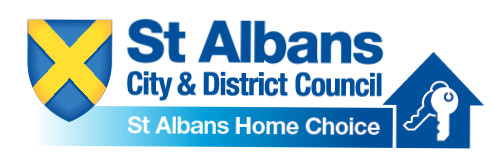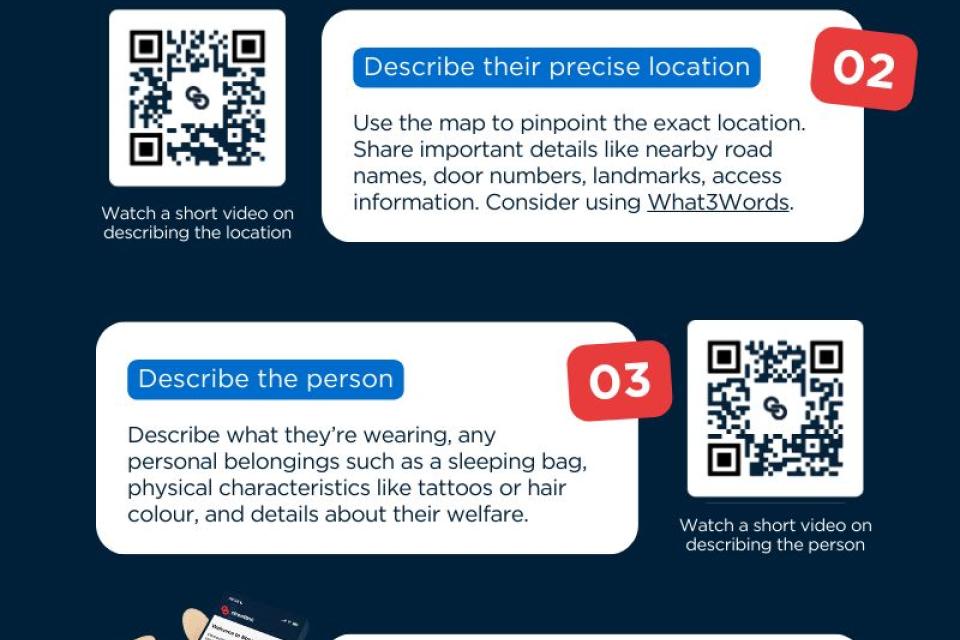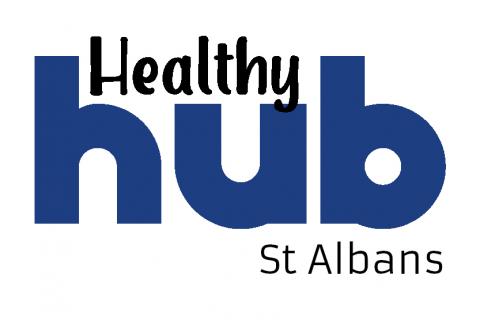Homeless or threatened with homelessness
Threatened with Homelessness
If you think there is a possibility you may be made homeless, or you are homeless currently, it is best that you get advice as soon as possible to:
- Try to prevent your homelessness
- Find out about your housing rights and options
- Find out what help we can offer you if you become homeless.
If you are homeless or believe you are at risk, or are a professional making a referral for someone else, please complete the form below. This will help us provide you with the relevant information and guidance for your particular situation.
For more guidance on the support we can provide, alongside the relevant contact details, please see the information in the sections below.
What we will do to help
You are considered threatened with homelessness if you're likely to become homeless within the next 56 days or if you've received a Section 21 notice from your landlord. If this applies to you, please don’t delay—reach out for help as soon as possible so we can work together to prevent homelessness.
Our aim is to prevent homelessness wherever possible by agreeing a plan with you to address the issues that may lead to you losing your home.
If preventing homelessness isn’t possible, we’ll support you in trying to find a new home before you actually become homeless.
Whether it’s helping you stay in your current home or find somewhere new, early advice is always best to avoid a crisis situation where you actually become homeless.
Our offer - we can:
- Assess your current housing situation and work out with you what your needs are
- Agree an action plan with you outlining the steps you and the council will take to try to prevent homelessness
- Help you develop a housing plan to find a new home if it’s unlikely you can stay in your current home
- Recommend and refer you to other agencies and organisations that can support the plans we agree, either directly or by providing contact information
Contact Us
Please email Homelessness.Triage@stalbans.gov.uk for advice and guidance from one of our team members.
If you need urgent help outside of our normal office hours (Monday – Friday, 9:00am – 4:30pm), please call our out of hours service on 01727 866100.
Looking for accommodation Toggle accordion
Housing in St Albans is in high demand and there is a shortage of affordable private rented accommodation and severe shortage of social housing.
If you’re in housing need, you will need to try and access private rented accommodation.
Types of accommodation
Shared accommodation: if you are a single person under the age of 35, then benefits will generally only cover the shared accommodation rate. In shared accommodation you usually have your own room and share the rest of the property with other tenants or the landlord. This could be a room in the landlord's property, a house or flat-share, or a bedsit.
Self-contained accommodation: this is accommodation that is not shared with anyone outside your household. This accommodation is usually more expensive, and may require additional background checks prior to you renting the property.
Affordability
If you are on a low income you may be able to get help with your rent from benefits. Most people will need to claim the housing element of Universal Credit. Some people will need to claim housing benefit, for example pensioners and people with three or more children
What financial help is there?
The Local Housing Allowance (LHA) shows the maximum amount of benefit you can receive, but you may receive less dependent on your income. The LHA for this area can be found on the St Albans website. You can find out the LHA for anywhere in the country by going to www.gov.uk.
St Albans Community Bank may be able to assist with a low-cost loan for a deposit or rent in advance. You can contact the Community Bank by phone on 01727 859135 or visit their website www.stalbanscommunitybank.co.uk.
Finding private rented accommodation
Private rented accommodation in this area is expensive and can be difficult to find, particularly if you will need help from benefits.
You may find it easier to look for accommodation in surrounding areas such as Hatfield, Hemel Hempstead, Luton and Dunstable. There are several different ways of finding private rented accommodation.
There are various websites advertising properties, for example:
www.ezylet.com , www.flatmaterooms.co.uk , www.nestoria.co.uk , www.mouseprice.com , www.openrent.co.uk, www.your-move.co.uk , www.onthemarket.com , www.rightmove.co.uk , www.zoopla.co.uk
Local estate agents and letting agents can help find a property. They are no longer allowed to charge certain fees connected to finding a property. Some estate and letting agents may need you to have a guarantor to rent a property, especially if you are on a low income.
Fleeing domestic abuse Toggle accordion
If you are experiencing domestic abuse from a partner, there is help available.
Safer Places can provide advice and assistance to move away from your current area and you can contact them on 03301 025811.
The Council can also provide advice and assistance, and if you apply as homeless or if you are threatened with homelessness, you can discuss this situation with a Housing Options advisor. The local refuge service, SAHWR, can also provide advice and help.
Below is a leaflet giving a range of other organisations, local and national, that can provide support.
16 or 17 years old Toggle accordion
If you are 16 or 17 years old and are concerned that you may become homeless, then there is a range of support from the Council and from the local Children Social Services provider, Hertfordshire County Council.
If you are under 18, you are still classed as a minor, and so Children Services have a responsibility to provide support. However, you can also access other services, and you can live in shared accommodation under a licence agreement. You cannot, however, have a tenancy until you turn 18.
In Hertfordshire, Herts Young Homeless provide a lot of the support for 16 and 17 year olds that become homeless. You can also call 0300 323 0130 and speak to an advisor about your situation.
The Council has developed a leaflet to help give advice and information on accessing support if you are this age.
A care leaver Toggle accordion
If you went into the care of Children’s Social Services as a child, then Children’s Services and the Council have certain responsibilities when you turn 18.
If you are ready to live independently, then Children’s Social Services can refer you to the Council to move on into social housing. This will be with the Council you were living in when you went into care, or the area you lived or live in during your care placement.
You cannot self-refer for move-on into social housing, this has to come from your allocated social worker. If you want to discuss this further you will need to contact your social worker. You can also call the Hertfordshire County Council Children’s Servicesduty line on 0300 123 4043.
The Council has developed a leaflet to help give advice and information on accessing support if you are a care leaver.
A former member of the Armed Forces Toggle accordion
If you have recently been in the armed forces or the reserves, you may be entitled to additional priority on the Council’s Housing Register. You will need to state on your application that you used to be in the forces and provide information to support this.
If you are a former member of the armed forces threatened with homelessness there are a variety of support options available to you. Below is a leaflet with details on organisations and charities that can provide you with support.
A refugee Toggle accordion
How can the Council help you?
You can ask the Council for help as soon as you get the Home Office decision letter. This is called making a homeless application.
You do not need to wait for your residence permit, a national insurance number or an eviction notice. The Council might ask to see these things later.
The Home Office letter should be enough for the Council to start looking into your situation and how they can help. Not everyone who approaches their local council is entitled to housing. Everyone can get advice from the Council and the Council might have a duty to provide temporary accommodation and support with other longer term housing solutions.
Where a Council is satisfied that a person is eligible and homeless or threatened with homelessness, it must draw up a personalised housing plan based on its assessment of your need. The plan should contain the steps to be taken to prevent or relieve the applicant's homelessness.
The Housing Crisis in the UK
In the UK the supply of available housing has not kept up with demand. Getting access to housing of any type is becoming increasingly difficult for low income households. There are areas in the country that have cheaper rents.
London and the south of England tend to have higher rents than other areas, depending on where you live. When considering where to live, you must look at what is realistic, affordable and most accommodating to your circumstances. You will probably need to rent privately at first.
For advice that may apply to your circumstances please visit:
Shelter England - Refugee and Migrant Charities
Or contact:
Migrant Help 0808 8010 503
Refugee Council 0808 196 7272
Shelter 0300 330 1234
Different types of housing
Private rented sector: this is a property owned by a landlord and rented to a tenant.
Self-contained accommodation: this is rented accommodation where only you and your household have sole use of a kitchen, bedroom, living room and bathroom. In this type of accommodation, you are usually responsible for all bills including rent, gas, electricity and Council Tax.
Shared accommodation: this is accommodation where a tenant does not have exclusive use of more than one room in a property and shares facilities such as bathrooms and kitchen with other tenants. This type of accommodation usually includes bills such as gas, electricity and water within the monthly rent and tends to be cheaper types of accommodation.
Social housing: this is housing and flats that are owned by Local Government or Housing Associations and are rented to people with a low income or have a housing need. Not everyone is eligible for social housing.
St Albans Council has a long housing waiting list.
What do I pay for in housing?
The types of things you will most likely need to pay for, depending on your type of accommodation, are rent, gas and electricity, Council Tax, water charges, internet and phone costs.
Where do I look for housing?
Here are some useful links:
www.spareroom.co.uk
www.idealflatmate.co.uk
www.openrent.co.uk
www.rightmove.co.uk
www.zoopla.co.uk
www.onthemarket.com
Help with first month's rent and deposit
If you need help with the first month’s rent and deposit you can contact St Albans Community Bank, see St Albans Community Bank
If you require a guarantor, see Rent Guarantor
Local Housing Allowance
If you require Universal Credit (Benefits) to help pay for your living costs towards your rent, Universal Credit will pay up to a certain amount, depending on how much you are earning, if you are working, and your financial circumstances.
Local Housing Allowance rates: St Albans District
Shared room rate - 35 years old and under: £416.49 a month
1 Bedroom Need: £800.00pcm
2 Bedroom Need: £1000.01pcm
3 Bedroom Need: £1300.01pcm
4 Bedroom Need: £1699.99pcm
(pcm means Per Calendar Month)
Average cost of a 1 - bedroom flat in St Albans District Is £900 - £1,300.
The amount that Universal Credit will pay towards rent varies from area to area in England.
To check the Local Housing Allowance Rates for other areas see the government website: Local Housing Allowance Rates
If you need to apply for Universal Credit please apply via: www.gov.uk/universalcredit/how-to-claim
You can download the information above in the form of a leaflet below:
Being released from prison or youth detention Toggle accordion
If you are facing homelessness upon being released from prison or a Youth Detention Centre, there are a number of options available to you.
The Council has developed the leaflet below to help give advice and information on accessing support if you are leaving prison with no housing available.
Leaving hospital or struggling with mental illness Toggle accordion
If you are facing homelessness on leaving hospital, or struggling with mental illness, there are a number of options available to you.
The Council has developed the leaflet below to help give advice and information on accessing support if you are leaving hospital or a mental health ward with no housing available.
Rough sleeping Toggle accordion
If you are rough sleeping, you will need to complete an application for assistance on the dedicated St Albans Home Choice website so that the Council have your information.
The Council can look at starting a homeless application with you, and provide you with advice and assistance to get off the street and into safe accommodation.
To read more about how the Council is committed to ending rough sleeping, and who they are working with, see Rough sleeping.
Register as homeless
If you are homeless now - or you are likely to be evicted from your current home within 56 days - use our dedicated website St Albans HomeChoice to register online:
Code of guidance for local authorities
A homeless application is a statutory function of the Council. All Councils are required to provide the opportunity to make a homeless application under law.
If you would like further information on the process of a homeless application, you can read about this on the government website here: Overview of the homelessness legislation



